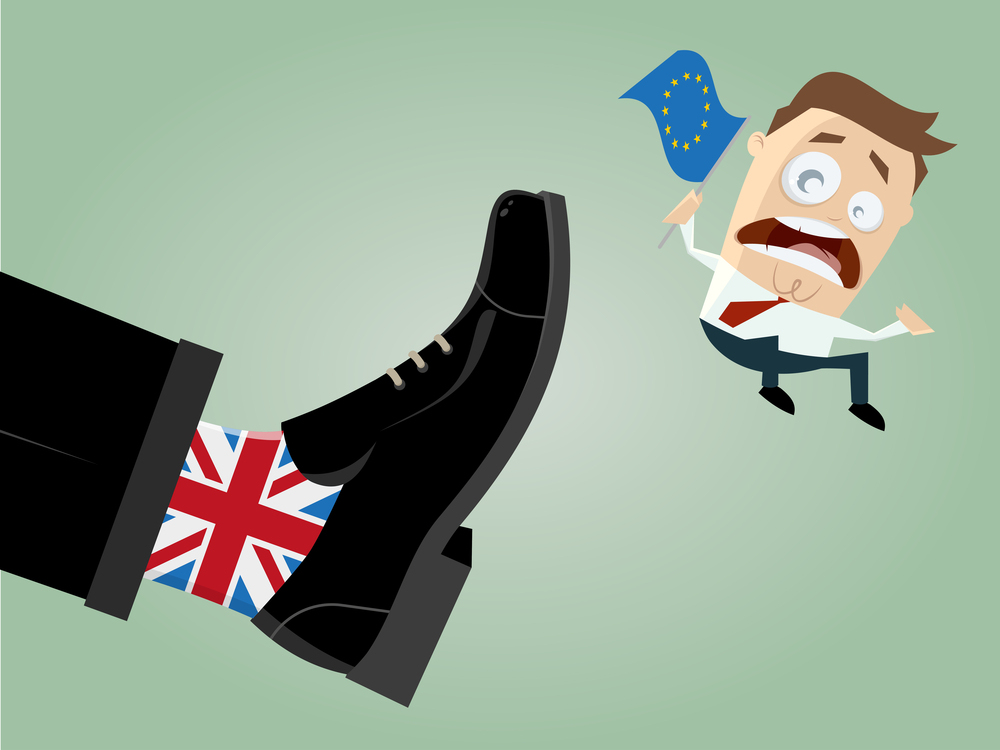Few things are more aggravating than a bad metaphor. On the Brexit negotiations, they abound. Before Christmas, in response to widespread pleas that the Government should publish a negotiating strategy, Crispin Blunt MP said no strategy survives contact with ‘the enemy’. In response to recent concerns about civil service negotiating capacity and intent, Tom Fletcher, the UK’s former Ambassador to the Lebanon, said Muhammad Ali didn’t publish his strategy before the Rumble in the Jungle.
In both these images, the UK is on one side and a hostile Europe on the other. Plucky Whitehall in the Blue Corner, the Commission in the Red. The negotiations will be tough, no holds barred, bloody. But our aim is for the EU to end up like George Foreman, after rounds of ‘rope-a-dope’ exhaustion, laid out cold on the canvass, utterly defeated – or even, in Blunt’s analogy, destroyed. It’s a zero sum game, winner takes all, adversarial stuff, brutal.
The weakness of these dreadfully old-fashioned analogies is that they ignore obvious facts. The EU nations are vital trading partners. Partners. Friends, even. Knocking them out or killing them is not in our interests. Our economic fortune is very largely dependent on theirs. Indeed contemporary commercial success is rooted in the international, interdependent nature of modern capitalism. The UK is in some ways the world’s most successful ‘intermediate’ economy. There’s comparatively little we wholly manufacture ourselves that the rest of the world wants to buy. But our expertise is often sought and paid for to add value to complex, multinational product, supply and value chains.
This isn’t just the case in obvious pan-European consortia, like Airbus or Eurofighter. British SMEs contribute components to what we think of as German cars. British digital firms provide IOT support for European products and services. UK specialists advise on, integrate and build infrastructure in other countries, and are integral to cross-border transport, communications and energy projects. UK management consultants are hired to help European firms grow. Even our internationally renowned financial services (and related legal expertise in, say, contract law) are successful largely because they are the enablers of business and consumer ambitions, helping finance and support domestic, overseas and multinational value chains and initiatives.
The adversarial analogies reek of dated, almost autarkic visions of trade. But modern capitalism just doesn’t work like that. The danger of such imagery however is that it becomes self-fulfilling. Treat someone as your enemy and guess what they become? Especially if they’re already sore. We’ve heard from MCA member firms about instances where they’ve already missed out on work in EU countries, especially Germany, because of post-Referendum resentments. “We just can’t hire a British firm now…you’ve betrayed the Project.” Almost “You used to be our friends.” If some partners have fallen out with us, we must try to make up with them again. And that means explaining what they get from any Brexit deal, and how our interests and theirs converge.
The power of tired imagery means that thoughts of hostile Germans inevitably take the mind to football and the second half of Tom Fletcher’s lesson in the misapplication of metaphors. Apparently, according to Mr Fletcher, we should all cheer on our negotiators, like West Ham fans who have learned the hard way that the team plays better when not being booed. Not even my boss, the kind of Hammers fan who reminds us that his team “won the World Cup”, is buying this. He has to support his team win, lose or draw. The free citizens of the UK are not bound by such a priori slavishness. And my boss is also, perhaps regrettably, not consulted by Slavan Bilic about tactics. By contrast, our negotiators, and especially their political masters, are our proxies. Through them, we are in the negotiating chamber – on the pitch, if you must. They should be engaging widely, with businesses, consumers, tax payers, frontline public servants about what a good Brexit looks like. And that includes articulating their vision for it clearly and opening it up for scrutiny, discussion and adaptation.
(Of course, the footballing analogy has some limited appeal. If results go badly, the manager gets the sack. This certainly must keep Slavan Bilic/Theresa May awake at night.)
So no more of this shoddy use of the glorious capacity of the English language for analogy and imagery. Shakespeare, great borrower of plots and locations from Italy, France, Greece, the Czech Republic, Spain, Croatia, Denmark, would have been ashamed. And can we please, please, please say good riddance to the idiotic card sharp metaphor: no card player ever shows his cards to his opponents. Well I’ve played enough poker to know that’s true. But there I want to bluff, fool, humiliate and ultimately fleece my opponents. Fleecing our EU allies would be the easiest way to bankrupt ourselves. (And let’s be clear, if this is all adversarial, if the EU’s 27 nations are our ‘opponents’, then between them they are much more likely to have the aces, flushes and full houses.)
Actually, in my youth I also played a fair bit of Bridge. And I never showed my opponents my cards. But there were many times I wished I could show them to my various partners. I would have won a lot more hands.

